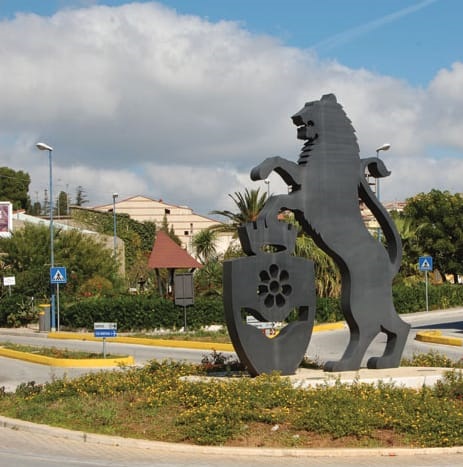A life given to traditional ageless poetry with alternate rhyme and to international poetry contests, 5 books penned, and a boundless love for Artena: this is Ezio Bruni – a man filled with poems in song.
First things first: What is a poem in heroic verse with alternating rhyme? What are the poetry contests?
The poems are verses of 8 lines, each of 11 syllables with the end of a verse in rhyme with the one after the next. The last two verses, then, have an independent rhyme that is to be resumed at the beginning of the next octave (verse). The verses are like those of Homer, so to speak, and even the Divine Comedy is written in heroic verse.
The poetry contests see the poets compete on subjects chosen by the jury at the time. Two poets are opposed on issues that give rise to 'philosophical challenges' such as 'day and night', 'bachelors and married men' or 'devils and angels'. The contests are very frequent in central Italy and each region has its peculiarities: for example in Tuscany it is usual that the disputes occur on political or religious subjects.
You must attend a performance to understand that it is not easy to write poetry with the structure having limits and still to say something 'intelligent'. And I can assure you that if the poets have good laughs and smile a lot. Ezio Bruni is one of those expert in the art, and his words strike deep into the heart.
"I attended a poetry competition in 1974, and I was fascinated. I studied for six years before being introduced to the first competition in Tuscany and when I started acting I realized that I could not stop."
Ezio invited us to his house for a polenta, but we understand now that the polenta (excellent! And made with maize farmed in Artena and crushed with a Ferentino stone) was just an excuse to play. He had introduced for the occasion one of his pupils, Alessio Checchi of Subiaco, a graduate in philosophy but with the hendecasyllable passion in his blood. The two met through Youtube and have become great friends.
"Our way of writing poetry we call 'a cantata' because words also follow their musicality that we need in order to count the syllables. This kind of recitation was used in the past for storytelling or to teach farmers. And it is well known that parts of the Iliad or the Odyssey were used as a teaching technique for breeding or cultivation to people scattered over the country.
Ezio has used this way of narrating life and human feelings in his biography in hendecasyllable 'All of my life I reveal to you, without hiding any small detail’. But his love for the traditions goes beyond words and for years Ezio has organized the cultivation and harvesting of wheat in a small field following the same techniques of many past centuries.
Everything must follow the ancient customs and during dinner he declaimed some of the typical ways that were used ny workers collecting grain in the early twentieth century. Ezio explains that the 'gentlemen' chose peasants who could recite poetry (improvise in song) because with the music they worked better. This observation brought me to a stop by and reminded me of the concentration camps or the cows that make more milk with Mozart. These things I believe and he has won me over.
The joy of the two friends sparring in hendecasyllabic song, and the top quality and taste of the polenta made us experience some unique moments and it is unfortunate that many other friends have not yet shared the pleasures of a poetry competition. You will have to go to Rocca Priora, where there is being organized dialectal poetry contests, to understand what I say.
To the best!
A treasure-trove of traditional poetry in Artena
powered by social2s









Follow us